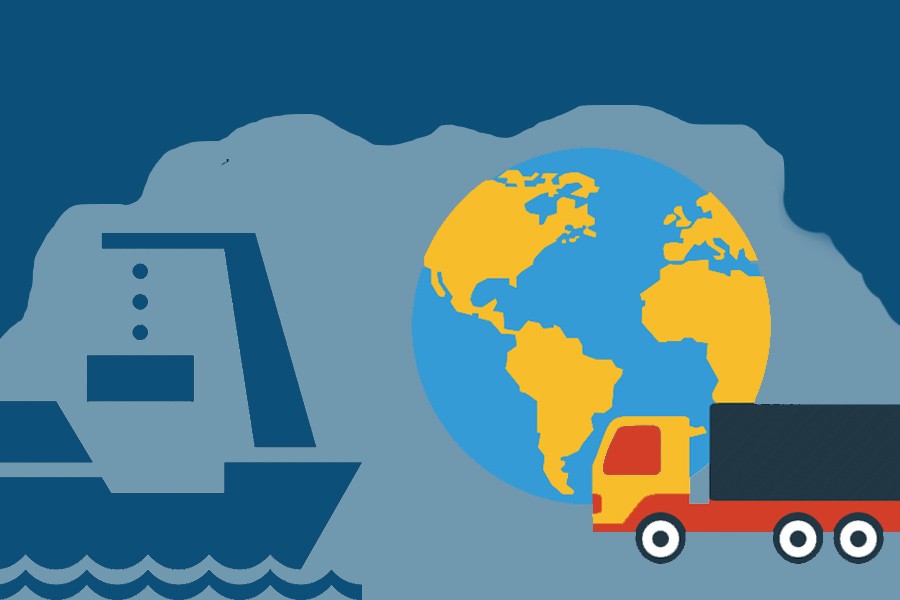Against the backdrop of the fierce competition among nations to grab new export destinations, the nonchalance of Bangladesh traders and the authorities no longer appears surprising. This stance on their part has apparently become normal. While smaller and veritably nondescript nations are found engaged in desperate search for locating newer destinations, Bangladesh is content with its less than desired performance in the export sector. Prime Minister Sheikh Hasina has rightly focused on the subject while opening a conference marking the 60th founding anniversary of Dhaka Chamber of Commerce and Industry (DCCI) in the capital on Oct 28. Expressing her dismay at the businesses being bound by the traditional mindset of reaching only one or two destinations for their products, she laid emphasis on diversification of the country's exports. The conference was titled 'Destination Bangladesh: Gateway to Growth and Investment'.
The country's export basket has not widened noticeably since its independence over 4 decades ago. It is ready-made garments (RMG), shrimps and leather products which now overwhelmingly represent the country's exports. There is no denying that the country's export-based segment of the economy is set to face critical times, unless diversification of products and exporting to newer markets materialise. Keeping the whole gamut of the country's export trade in view, some critical imperatives in the sector come to the fore. These were discussed by business leaders and policymakers at the first plenary session of the 'Destination Bangladesh' conference. Among the prerequisites, adequate infrastructure for producing export items topped the list. Attracting quality FDI (foreign direct investment) was identified as being hinged on it. The reason the nation is badly in need of FDI is not only the capital. This vital trade window on the outside world is also necessitated by requirements like technology transfer, access to technological know-how, skill development and marketing opportunities.
For Bangladesh's export performance to go through a transformation, many other must-dos cropped up at the plenary session. Its participants, thus, emphatically focused on EPZs (export processing zones), FTAs (free trade agreements) and efficiency-cum-capacity of the Chittagong Port, the premier seaport of the country. In a fast changing world with increase in demand for sophisticated and state-of-the-art products, skilled workforce and the allied infrastructure back-ups are of prime need. Bangladesh can ill afford to compromise on the export products' quality and remain stuck in its narrow export base.
In order to see the Bangladesh economy reach new highs, a prime need at the moment is expansion of its export range and sphere. Apart from adding newer products to its hackneyed list, its destination ought to expand to distant shores. The ongoing trade tiffs and policy shifts among nations may have opened opportunities for the country. The mulling of exploring markets in the former Soviet Union's CIS (Commonwealth of Independent States) countries is an innovative idea. But at the same time, relatively well-off countries like South Africa and Nigeria in Africa and Brazil, Mexico or Argentina in Latin America should also be kept in mind. The export potential of the country cannot be trifled away mindlessly.


